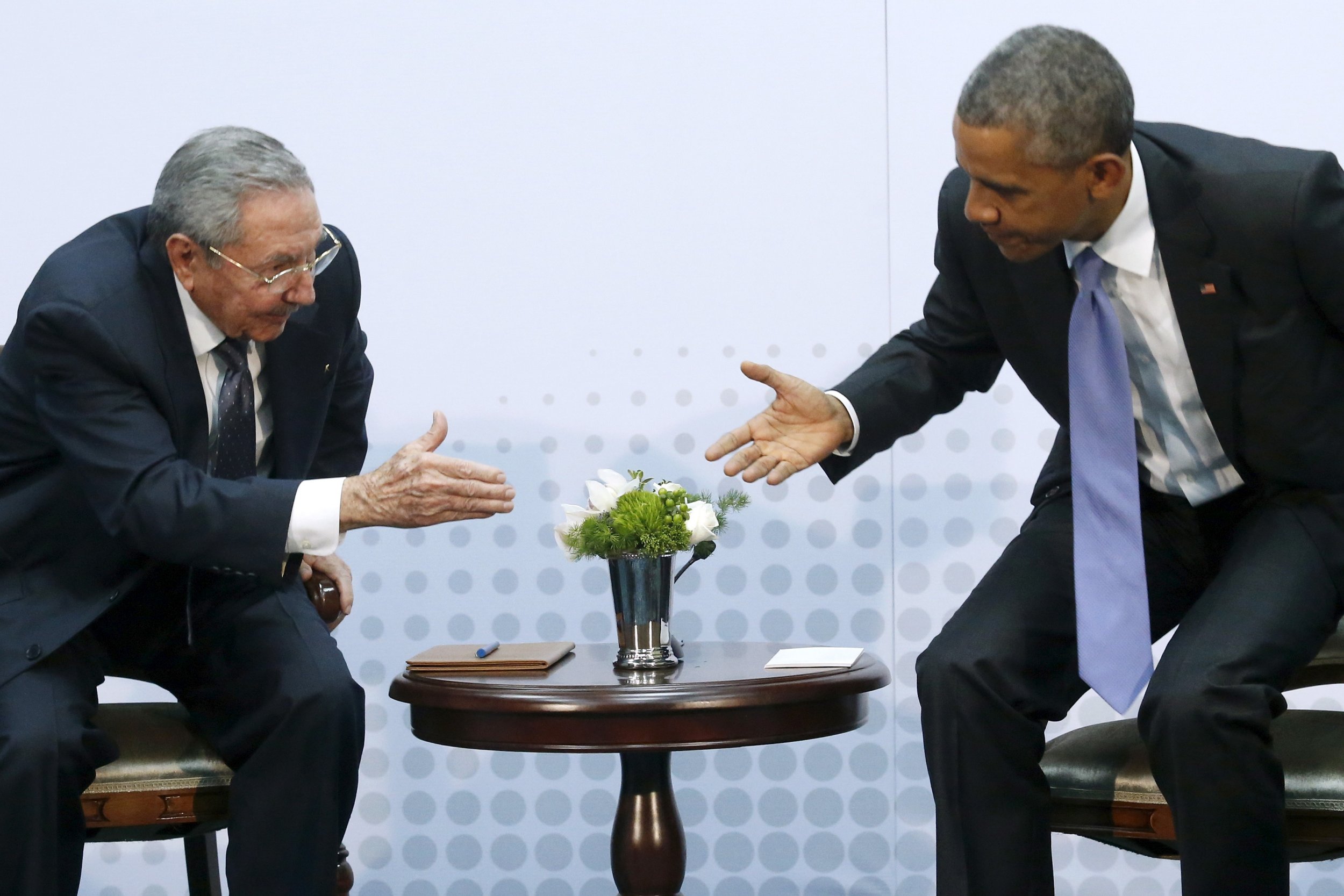
When President Barack Obama junked 60 years of U.S. foreign policy to seek a rapprochement with the Castro regime in Cuba, he was aware that he would be accused of ignoring human rights. After all, the Obama administration got next to nothing for the concessions it made to Cuba, and from all accounts it did not bargain hard for more.
So the administration took the line, right from the start, that its actions would help human rights in Cuba almost automatically.
The White House webpage, for example, recounts the agreement with the Castro regime and then adds this:
A critical focus of these actions will include continued strong support for improved human rights conditions and democratic reforms in Cuba. The promotion of democracy supports universal human rights by empowering civil society and a person's right to speak freely, peacefully assemble, and associate, and by supporting the ability of people to freely determine their future. The U.S. efforts are aimed at promoting the independence of the Cuban people so they do not need to rely on the Cuban state.
The president himself said this:
Where we disagree, we will raise those differences directly—as we will continue to do on issues related to democracy and human rights in Cuba. But I believe that we can do more to support the Cuban people and promote our values through engagement.
How's that working out?
Here is some recent news, about last Sunday, May 24—one single day:
Nearly 200 Cuban Dissidents Arrested
Monday, May 25, 2015
Nearly 200 Cuban dissidents were arrested throughout the island yesterday.
In Havana, four dozen members of The Ladies in White were arrested as they attended Sunday Mass. Also arrested were male supporters, including democracy leaders Antonio Rodiles, Angel Moya and independent journalist Juan Gonzalez Febles.
In Santiago, over 80 activists of the Cuban Patriotic Union (UNPACU) were beaten and arrested, including some who had been released under the Obama-Castro December 17th deal, namely Diango and Bianko Vargas Martin, and Ernesto Tamayo Guerra.
Dozens of others were arrested in the interior provinces, including Raul Borges, father of political prisoner Ernesto Borges, and youth activists from the Cuban Reflection Movement.
And renowned artist Tania Bruguera, who had her passport confiscated in December and is unable to leave the island, was arrested as she approached the Museum of Fine Arts to attend an exhibit for the Havana Art Biennial.
The returns appear to be in, and Obama is simply wrong. His "engagement" is helping the regime by reducing U.S. pressure to respect human rights and bringing it more money from tourism and remittances. And the Castros know all this—know that the administration is now set on business as usual and that they will have an even freer hand to abuse dissidents.
How do we know this? Last week, on May 21, the State Department issued this press release:
U.S. Talks on Re-establishing Diplomatic Relations With Cuba
Notice to the Press
Office of the Spokesperson
Washington, D.C.
May 21, 2015
On Thursday, May 21, Assistant Secretary of State for Western Hemisphere Affairs Roberta S. Jacobson hosted the delegation from the Cuban government led by Josefina Vidal, Director General of the U.S. Division of the Ministry of Foreign Affairs, for the fourth round of talks to re-establish diplomatic relations and re-open embassies.
On Friday, May 22, the heads of delegations will hold sequential press availabilities—first Cuba, then the United States—at approximately 11 a.m. EDT. The availabilities will take place at the Washington Foreign Press Center, located at the National Press Building, 529 14th Street NW, Suite 800, Washington D.C. 20045.
So, talks on May 21; 200 arrests just four days later. In other words, the two events are viewed by the Castro regime as entirely unrelated: talk and arrest, talk and imprison, talk and beat up protesters and demonstrators.
Sadly, the two events also appear to be viewed by the Obama administration as entirely unrelated. Where is the protest? Where is the cancellation or postponement of talks? Where is any action that tells the regime it cannot embarrass the president this way?
And where is the president? It is one thing for him to predict that "we can do more to support the Cuban people and promote our values through engagement." It is quite another for him to remain silent when that proves to be wrong, and our "engagement" leads to more and more abuses of human rights.
Elliott Abrams is senior fellow for Middle Eastern studies at the Council on Foreign Relations. This article first appeared on the Council on Foreign Relations site.
Uncommon Knowledge
Newsweek is committed to challenging conventional wisdom and finding connections in the search for common ground.
Newsweek is committed to challenging conventional wisdom and finding connections in the search for common ground.
About the writer
To read how Newsweek uses AI as a newsroom tool, Click here.








